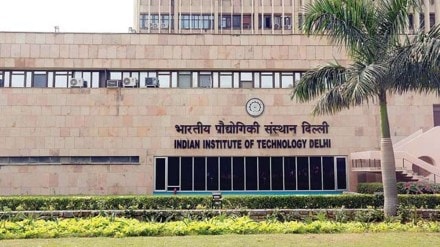Indian universities have reported a minor improvement in the latest QS Sustainability Rankings 2026 with 32 out of the 103 in the global list moving up the rankings compared to the previous year. The number of universities which saw a drop in the rankings stood at 30 while 15 retained last year’s rankings.
Among the 15 IITs that feature in the ranking this year, six have seen lower rankings in 2026 compared to the 2025. These include IIT Delhi, which was the top-ranked university within the Indian group, slipping from 171 in 2025 to 205 in 2026. Similarly, IIT Bombay, the second-best ranked Indian institute, has dropped one spot to 235.
India is one of the four higher education systems which has more than 100 universities featuring in the sustainability rankings this year. The US has the highest number of universities (240) followed by China with 163, the UK with 109, and France with 76.
“A total of eight locations saw at least 10 institutions debut in the ranking this year, with Mainland China with the most with 49 debutants, followed by India with 26, France with 19 and Türkiye with 18,” the QS said. QS’ methodology for the sustainability rankings is based on university performance across three assessment categories: environmental impact (45% weightage), social impact (45%) and governance (10%).
Some of the Indian institutes have performed well in the individual parameters. IIT Delhi and IIT Kharagpur both have risen into the top 100 in “employability and outcomes” parameter, ranking at 93 and 96, respectively. University of Delhi, on the other hand, has risen in “knowledge exchange” by 27 places to rank at 94. “IIT Bombay jumps one place to rank 100 in the “world for the environmental impact” lens whereas IIT Kharagpur has risen into the top 50 in the “environmental sustainability” indicator, placing at 49,” as per QS.
Jessica Turner, CEO of QS said that the role of higher education in the fight against climate change is highlighted in these rankings. “India’s role in sustainable development can neither be understated. With its ambitious renewable energy goals and its commitment to SDGs, particularly around development in the Global South, will require strong research capabilities and green skills. It is key that Indian universities continue to be supported to provide both the talent and the innovation required for a sustainable future,” she said.
Globally, Lund University in Sweden has taken the top spot for the first time since the ranking was established in 2023. University of Toronto had been the best in the world in 2024 and 2025 and now dropped two second place, followed by UCL in the UK which has climbed two positions to third overall.
Meanwhile, India’s top-ranked universities took a back seat in the QS Asia University Rankings 2026 released in early November where premier institutes like IIT Delhi, IIT Bombay and Indian Institute of Science (IISc) witnessed drop in their positions.
